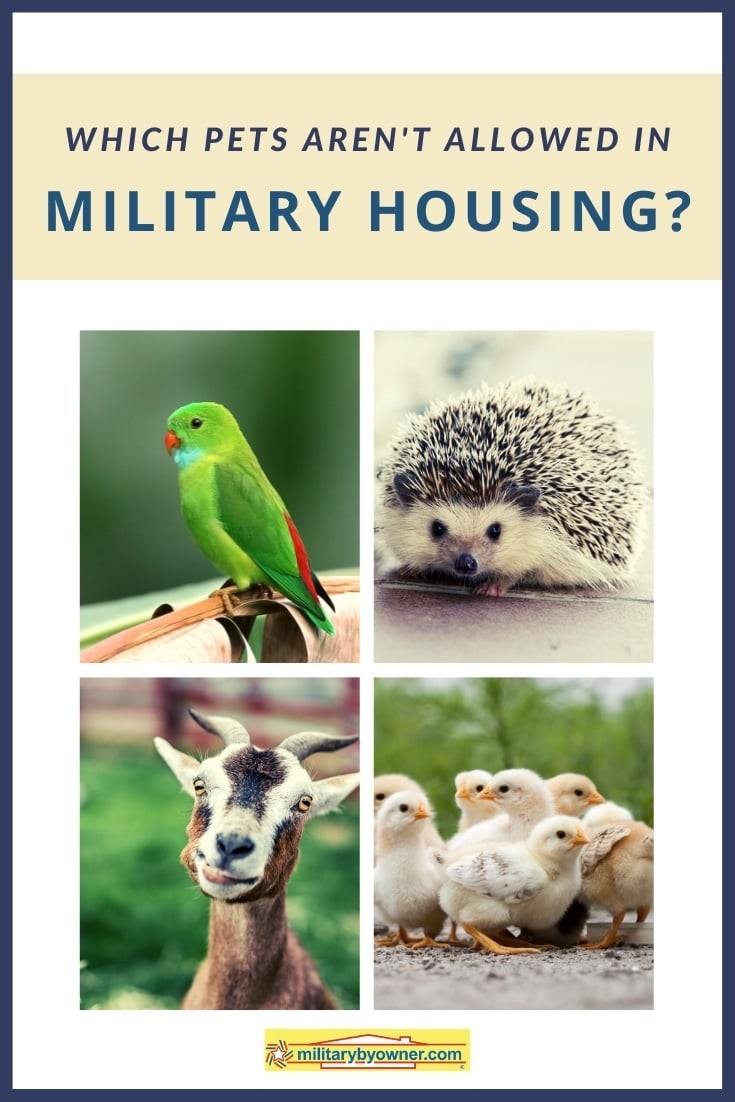Moving to a new home is always an adventure, and for military families, this often comes with the unique experience of living on a military base. If you’re a pet owner, one of your first questions might be, “Are Pets Allowed On Military Bases?” The answer isn’t always straightforward and depends on various factors, including the specific military installation and their housing policies. While the comforting image of furry friends welcoming service members home is common, the reality involves specific guidelines designed to ensure the safety and well-being of everyone in military housing.
Understanding pet policies on military bases is crucial for a smooth transition. These policies, established by privatized military housing companies and individual installations, aim to balance the joys of pet ownership with the necessity of maintaining a safe and harmonious community environment. While the idea of pet restrictions might initially seem disheartening, they are in place to prevent issues like aggressive animal encounters and ensure a comfortable living experience for all residents. Pet policies can differ, making it essential to research and understand the specific rules at your new base.
Alt text: Graphic text asking “Which Pets Aren’t Allowed in Military Housing?” displayed with silhouettes of a dog, cat, and lizard.
General Pet Guidelines on Military Installations
For many common pets, military housing is welcoming. You’ll typically find that standard household pets are readily accepted on military bases.
Commonly Permitted Pets:
- Dogs: A beloved companion for many, dogs are generally allowed, although breed restrictions may apply (more on that later).
- Cats: Equally popular, cats are usually welcome residents in military housing.
- Small Caged Pets: Creatures like hamsters and guinea pigs, housed in cages, are generally permissible and bring joy without posing broader community concerns.
Typically, installations permit a maximum of two pets per household, which could be two dogs, two cats, or one of each. This limit helps manage pet populations within housing areas.
Alt text: Close-up photo of hands gently holding a yellow lizard, illustrating reptiles are generally banned from military housing.
Restricted Animals and Dog Breeds in Military Housing
While many pets are welcome, certain animals and specific dog breeds face restrictions in military housing. These restrictions are not arbitrary; they are based on safety considerations and common-sense guidelines observed across various military branches and housing companies.
“Residents may not board dogs of any breed (including a mixed breed) that are deemed ‘aggressive or potentially aggressive’, unless the dog is a certified military working dog that is being boarded by its handler/trainer or approval is obtained by the Installation Commander in writing.” – Air Force Standardized Pet Policy
Animals Generally Banned from Military Housing:
The list of prohibited animals often includes creatures that are considered exotic, potentially dangerous, or could pose health and safety risks in a community living environment.
- Reptiles: Snakes, lizards, and turtles often fall under restricted categories due to potential safety and hygiene concerns.
- Rodents (Exotic): While hamsters and guinea pigs are okay, animals like rats (other than domestic breeds), mice (other than domestic breeds), gerbils, and chinchillas may be restricted.
- Hedgehogs: Despite their increasing popularity as pets, hedgehogs sometimes face restrictions due to local regulations or housing policies.
- Skunks: For obvious reasons related to odor and potential for spraying, skunks are universally prohibited.
- Ferrets: Ferrets may be restricted in some areas due to regulations concerning wild or potentially invasive species.
- Raccoons and Squirrels: These are considered wild animals and are not permitted as pets in military housing.
- Monkeys: Primates are prohibited due to safety concerns and specialized care requirements.
- Arachnids: Spiders, scorpions, and similar creatures are generally not allowed due to potential danger.
- Pigs (Except certain breeds as ESAs – check policy): Pigs, including pot-bellied pigs (unless specifically approved as ESAs and compliant with policy), are usually restricted.
- Poultry: Ducks, chickens, and other fowl are not permitted in military housing environments.
- Rabbits (In some cases): While sometimes allowed, rabbits can be restricted in certain housing areas. Check specific base policy.
Dog Breed Restrictions on Military Bases:
Certain dog breeds, often those perceived as having a higher potential for aggression, are commonly restricted in military housing. These breed-specific restrictions are in place to minimize the risk of dog bite incidents. Common restricted breeds include:
- Pit Bulls: Including American Staffordshire Terriers and English Staffordshire Bull Terriers.
- Rottweilers
- Doberman Pinschers
- Chows
- Wolf Hybrids
It’s important to note that these lists can vary slightly depending on the specific military installation and housing company. Always confirm the most current and specific regulations for your assigned base.
Alt text: A service dog in a red vest attentively sits, representing the exceptions for service animals in military housing pet policies.
Service Animals and Emotional Support Animals in Military Housing: Understanding the Exceptions
Federal laws like the Americans with Disabilities Act (ADA) and the Fair Housing Act (FHA) provide protections for individuals with disabilities who rely on service animals or emotional support animals (ESAs). However, the application of these laws within military housing can sometimes create confusion, particularly concerning breed restrictions for service dogs.
While service dogs are generally protected under the ADA and FHA, it’s not always explicitly clear whether breed-restricted service dogs are exempt from military base housing regulations. This ambiguity necessitates clear communication and documentation.
Emotional Support Animals (ESAs) present another layer of complexity. While ESAs can provide therapeutic benefits, they are not always covered by the ADA in the same way as service animals. Many types of animals can qualify as ESAs – including some that might otherwise be restricted as “exotic” pets on base, such as rabbits, birds, or even certain rodents. However, simply having an ESA designation doesn’t automatically guarantee base housing approval, especially if the animal type is generally restricted by base policy.
Key Recommendations for Service Animals and ESAs:
- Verification is Crucial: Always verify the specific pet policies of the military base you are moving to and the local housing company managing on-base residences.
- Documentation is Key: Gather all necessary documentation for your service animal or ESA, including certifications, veterinary records, and any letters from healthcare providers.
- Proactive Communication: Contact the base housing office and the housing company as early as possible to discuss your situation and seek clarification on their policies regarding service animals and ESAs.
Alt text: A young girl gently cradles a guinea pig, illustrating a commonly allowed small pet in military housing, in contrast to restricted exotic animals.
Navigating Pet Restrictions: Options if Your Pet Isn’t Allowed
If you discover that your beloved pet is restricted from military housing, you’ll likely need to explore off-base housing options. Fortunately, resources are available to help military families find pet-friendly accommodations in the surrounding community.
Finding Pet-Friendly Housing Off-Base:
Websites like MilitaryByOwner specialize in assisting military members in finding housing near military installations. Their platform includes search filters that allow you to specifically look for pet-friendly rental homes. Using the “pet policy” filter can significantly narrow down your search and help you find properties that welcome pets.
Service Animals and “No Pet” Policies:
Remember, if you have a service animal, they are legally protected and should be exempt from general “no pets” policies you might encounter in off-base rentals. Be prepared to provide necessary documentation to landlords to affirm your service animal’s status.
Pet Letters of Recommendation:
When applying for rental properties off-base, consider including a pet letter of recommendation with your application. A well-written letter highlighting your pet’s good behavior and responsible pet ownership can significantly increase your chances of securing pet-friendly housing.
By understanding the pet policies on military bases and proactively planning, military families can navigate pet restrictions and ensure that both their service requirements and their furry, scaled, or feathered family members are well accommodated.


